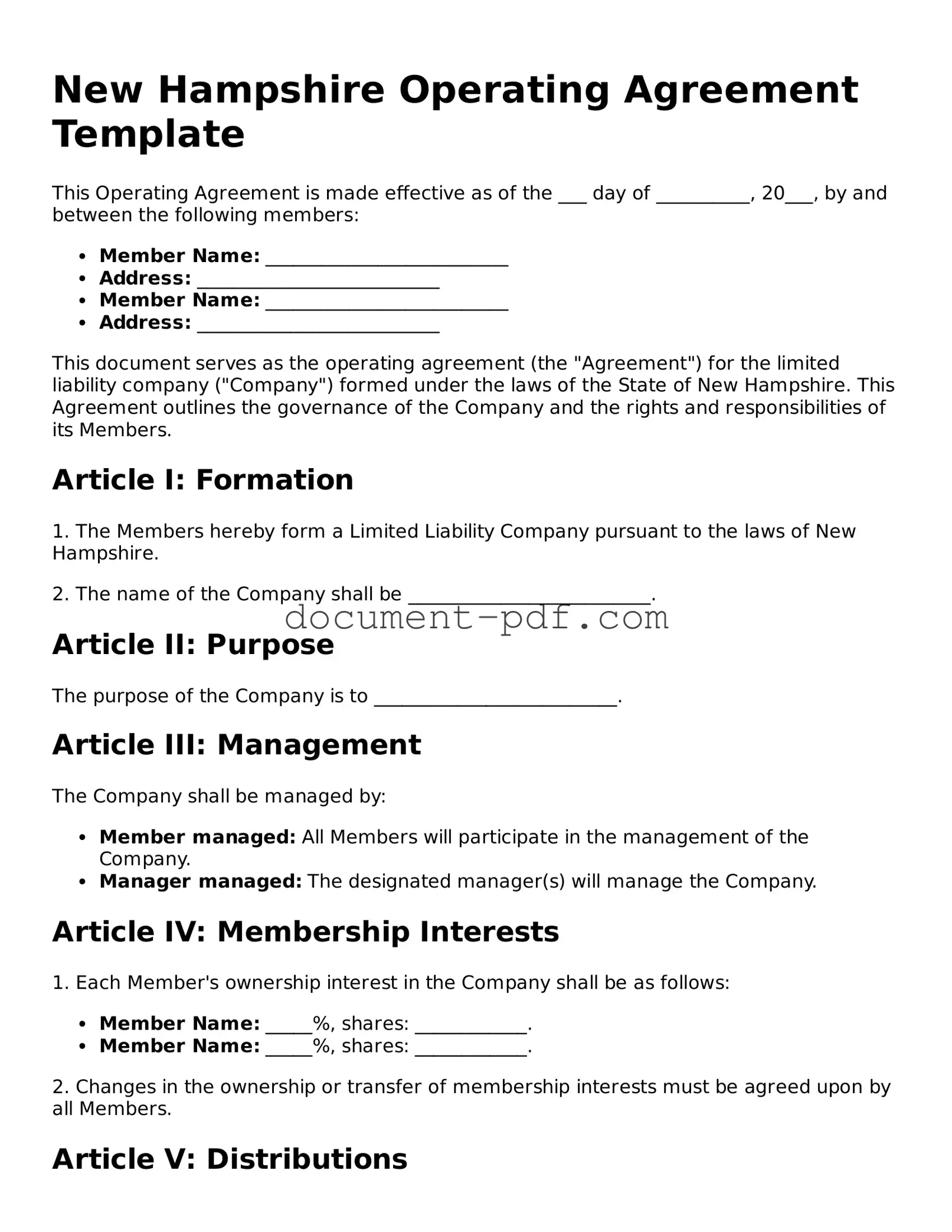Attorney-Verified New Hampshire Operating Agreement Template
The New Hampshire Operating Agreement form is a crucial document that outlines the management structure and operational procedures of a limited liability company (LLC) in New Hampshire. This agreement serves as a foundational blueprint for how the company will function, detailing the rights and responsibilities of its members. To ensure your LLC operates smoothly, consider filling out this form by clicking the button below.
Access Operating Agreement Editor Here

Attorney-Verified New Hampshire Operating Agreement Template
Access Operating Agreement Editor Here
Finish the form without slowing down
Edit your Operating Agreement online and download the finished file.
Access Operating Agreement Editor Here
or
Click for PDF Form
